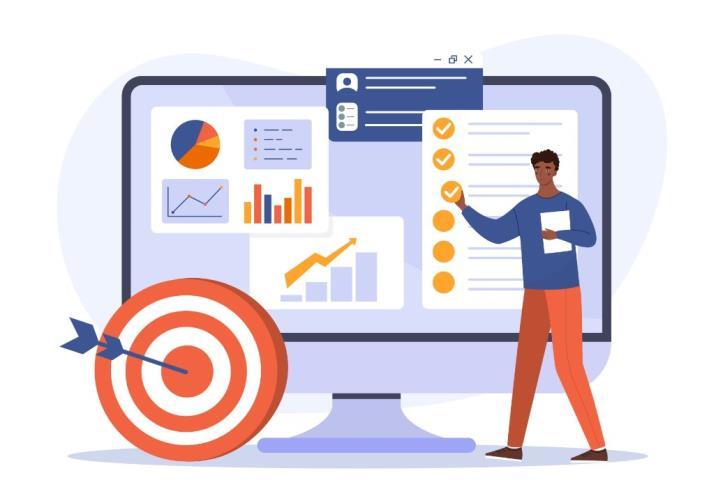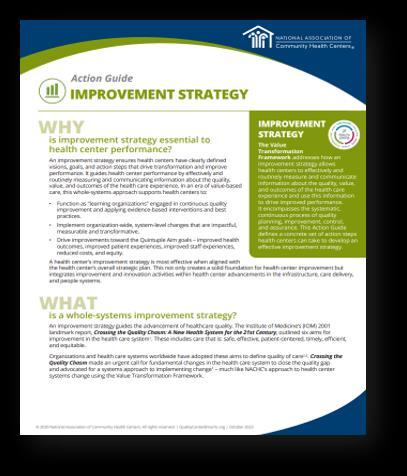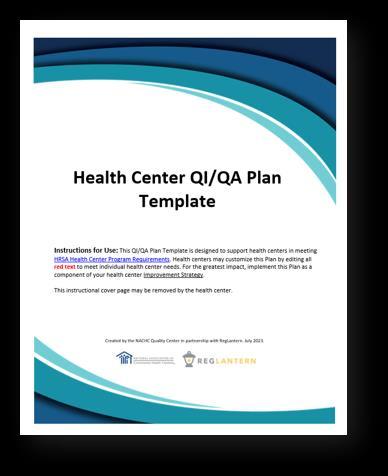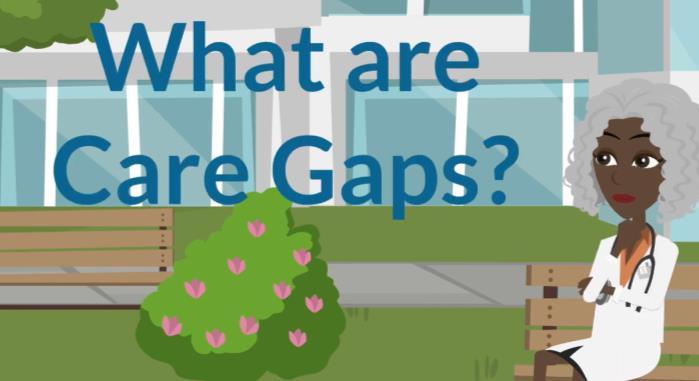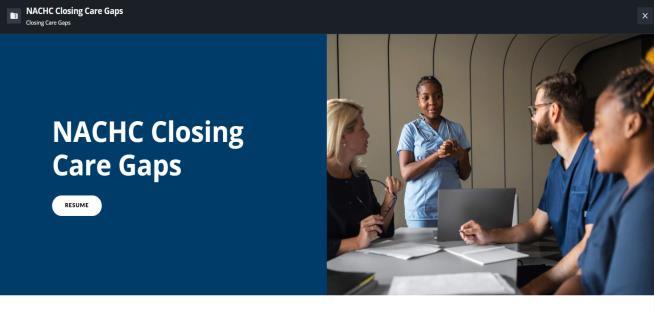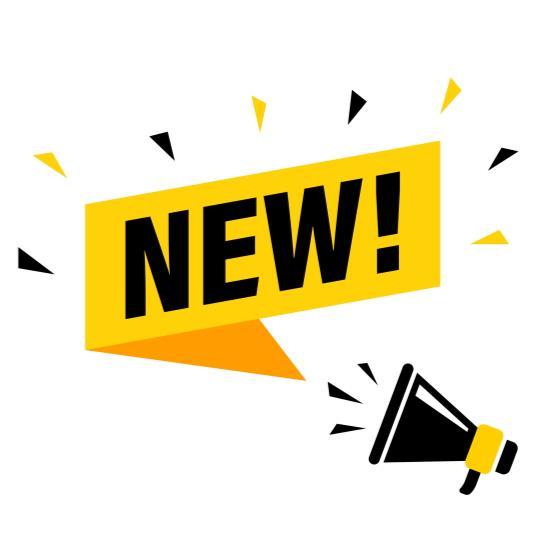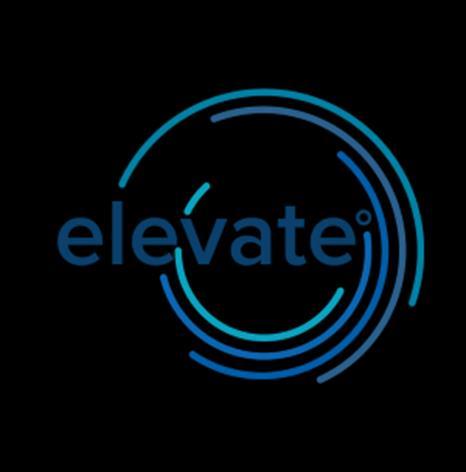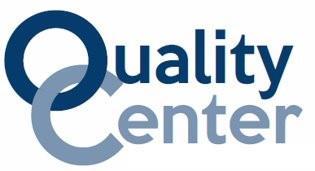The Elevate Community eJournal
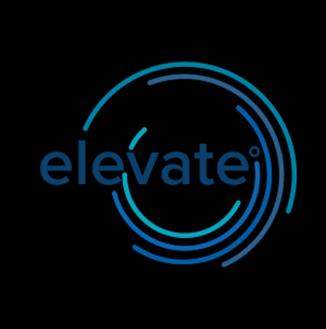






Would you like to learn more about ELEVATE?


Click “play” to watch a short video about Elevate (~1 minute)!

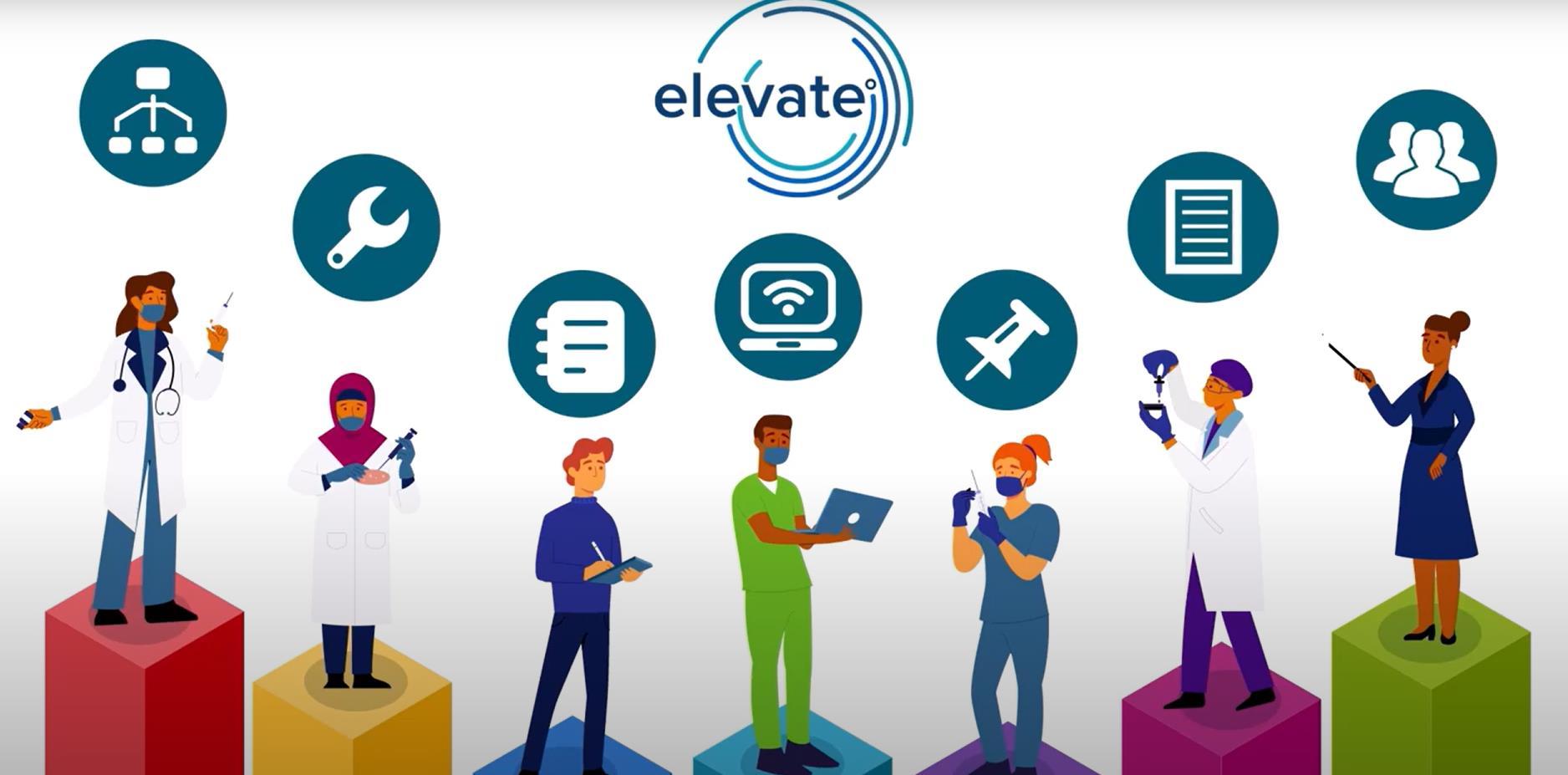
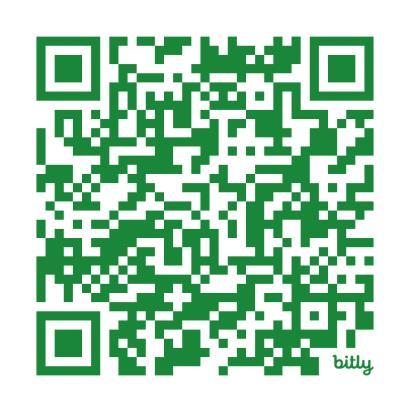
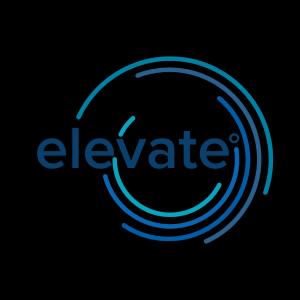

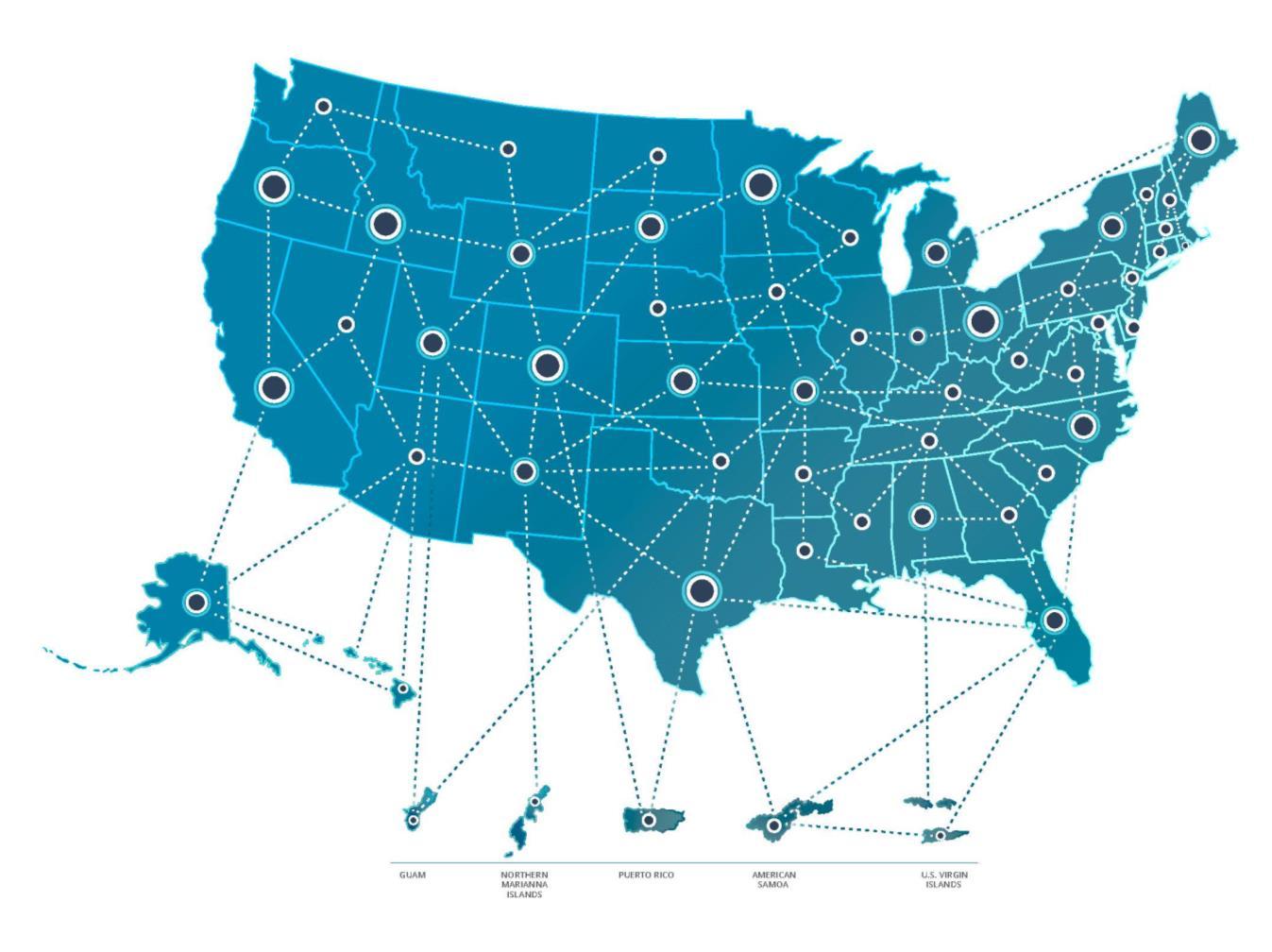












Click “play” to watch a short video about Elevate (~1 minute)!









January 14, 2025
Recorded Session – Access Here!
Session Slides – Access Here!
In January’s Elevate session, we heard from FQHC billing and coding expert Lisa Messina, with Messina Consulting, about AWV guidelines and reimbursements. We also heard from Dr. Theresa Jacobs with the Georgia PCA about AWV promising practices.

Here are a few great resources that were shared during this session:
Reimbursement Tip Sheet- Medicare Wellness Visits: Initial Preventive Physical Exam (IPPE) & Annual Wellness Visits (AWV) – Access Here!
Bonus Interview Additional footage from Dr. Jacobs – Access Here!
Annual Wellness Visit (AWV) Microlearning Course – Access Here!


Check out a few additional questions from the Elevate community.

Since AWVs qualify as an FQHC visit reimbursed at the PPS rate, the visit must be a face-to-face encounter between the patient and a qualified provider (MD, DO, NP, PA, CNM).
(See Medicare Billing Lingo, Defined! for definitions of FQHC visit and face-to-face encounter.)
Although auxiliary personnel (nurses, MAs) may complete many AWV service elements (as indicated by scope of practice, education, and training limits set by their individual State), the provider must have a role in the visit.
While Medicare does not specify which AWV service elements are to be completed by the provider, in general, they complete the clinical decisionmaking activities associated with comprehensive preventive medicine evaluation and management (E/M) services, such as:
• Conducting and interpreting cognitive impairment assessments
• Leading Advance Care Planning (ACP) discussions
• Making decisions about follow-up care or referrals
AWV is a face-to-face service
(see Medicare Billing Lingo, Defined!) and is included on the Medicare telehealth services list during the COVID-19 telehealth extension through December 31, 2025. Patients may self-report vital signs if they have the available necessary medical equipment; otherwise, providers may document that the data is not available. Keep in mind, the reimbursement for providing an AWV via telehealth is less than the reimbursement for providing an AWV in-person ($94.45 compared to $271.88 – see the IPPE/AWV Reimbursement Tip Sheet for details). Health centers will need to consider the pros and cons of providing AWVs via telehealth.
IPPE is not included on the Medicare telehealth services list because a physical exam is required, necessitating the need for an inperson visit.


February 11, 2025
Corrected* Recorded Session - Access Here!
Corrected* Session Slides – Access Here!
In February’s Elevate session, we continued with our focus on Medicare workflows with a focus on HCC Coding and Risk Adjustment. We heard from Jeff McInnes and Michael Ceballos with Facktor as well as Dr. Christopher Beckett and Amy Reed with the Williamson Health and Wellness Center.

* An error was made by one of the presenters, incorrectly identifying SDOH codes as being mapped to payment HCCs. We can confirm that updates to the 2025 CMS HCC coding model (version 28) do not include Social Drivers of Health (SDOH) codes mapped to payment HCCs. While it is still recommended to assess for SDOH and utilize ICD-10-CM codes (Z codes) for documentation, they will not contribute to a higher Medicare risk adjustment at this time. For more information on 2025 ICD10-CM mappings, view this CMS resource.

Check out this resource!

Here is a great resource that we shared during this session:
HCC Coding and Risk Adjustment Basics Course (on NACHC’s Learning Hub*) - An introductory course that will walk you through terms and reporting strategies – Access Here!
* Do you need help accessing our Learning Hub? Use this resource!




March 11, 2025
Recorded Session – Access Here!
In March’s Elevate session, we continued with our focus on Medicare workflows with a focus on AWVs, HCC Coding, and Care Management. We heard from FQHC billing and coding expert Lisa Messina, with Messina Consulting, about AWV guidelines and reimbursements with a focus on Community Health Integration and Chronic Care Management.
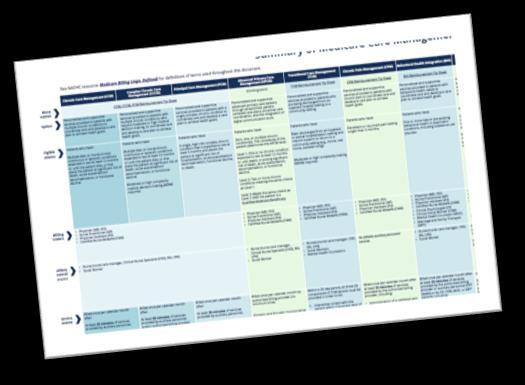
Important differences exist across Medicare care management services in service elements, time requirements, and staff roles. What applies to one service may not apply to another.
Review the Medicare Care Management Services Summary for more information.


Looking for more resources? We’ve got you covered!


Have you met Maria, our patient persona the first quarter of 2025?
Meet Maria Lopez – You may remember Maria from our previous sessions. We used her this month to discuss which Medicare services she may benefit from. – Meet Maria!
Layering the Cake – Watch this video to see how Maria’s layered cake provides an example of how Medicare services can be combined to improve health outcomes and optimize reimbursement. – Access Here!
Check out our Reimbursement Tip Sheets for 2025! Updates include:
• Alignment with 2025 Medicare
Physician Fee Schedule Final Rule
• Detailed guidance
• Simplified language
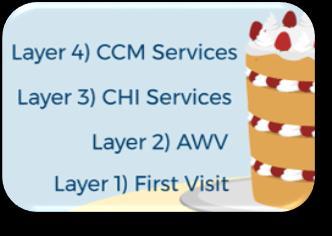
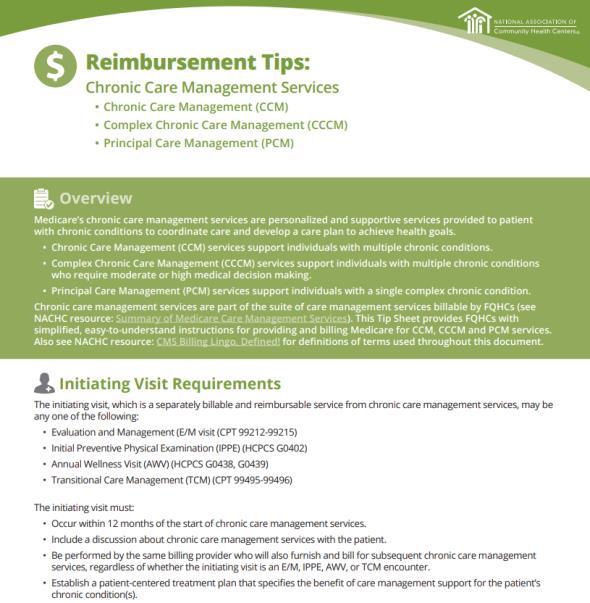


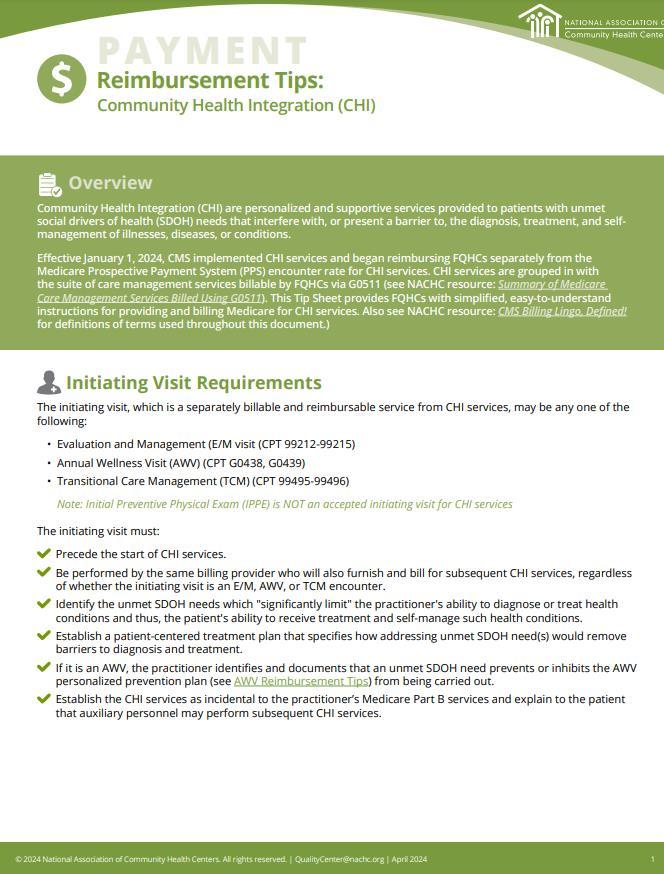


April 8, 2025
Recorded Session – Access Here!
Session Slides – Access Here!
In April’s Elevate session, we discussed strategies for not just individual staff but health center systems to improve workforce well-being and find joy at work. We heard from field expert Damali Robertson with LifeLong Medical Care speak about “shifting the paradigm” to create a safe and supported work culture for staff.

Joy in Medicine Health System Recognition Program - Learn More About the Program!
Centers on 6 Pillars that contribute to well-being
• Assessment
• Commitment
• Efficiency of Practice
• Environment
• Teamwork
• Leadership
• Support


Would you like more information on this topic? Check out some of our partner resources!
The BPHC Workforce Well-being Technical Assistance (TA) project provides free, data-driven training and support to increase workforce engagement, satisfaction, and retention at health centers. Subscribe to the newsletter!
National Training and Technical Assistance Partners
Clinical Workforce Development View Resources!


Resiliency Toolkit: A Comprehensive Guide for Health Centers and Their Staff –Download a Copy!
To build resilience in health center staff, focus on both individual and organizational strategies, including promoting self-care, fostering a supportive work environment, and providing resources for stress management and mental health support.
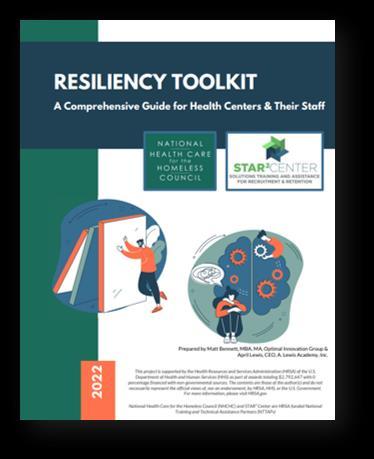



May 13, 2025
Recorded Session – Access Here!
Session Slides – Access Here!
In May’s Elevate session, we discussed the basics of Artificial Intelligence (AI) for health centers. We heard valuable introductory content from NACHC’s own Dr. Raymond Uy, about building health center readiness from Cally Kamiya Johnson from OCHIN, and Howard Rubin from Evara Health presented a case study where AI was used in a health care setting.

Do you want to know how to prepare your data for AI-driven Analytics? We’ve got you covered!

Check out NACHC’s eLearning course: A Health Center Case Study Leveraging SDOH Data for AI-driven Analytics.
Access the course here!

Think of AI as a robot that can think, learn, and make decisions through algorithms.
Learning - patterns, predictions, and improving performance over time.
Reasoning - logical reasoning based on the information learned
Perception - interprets the world by recognizing objects, speech, and text
Adaptation - adjusts behavior based on new information
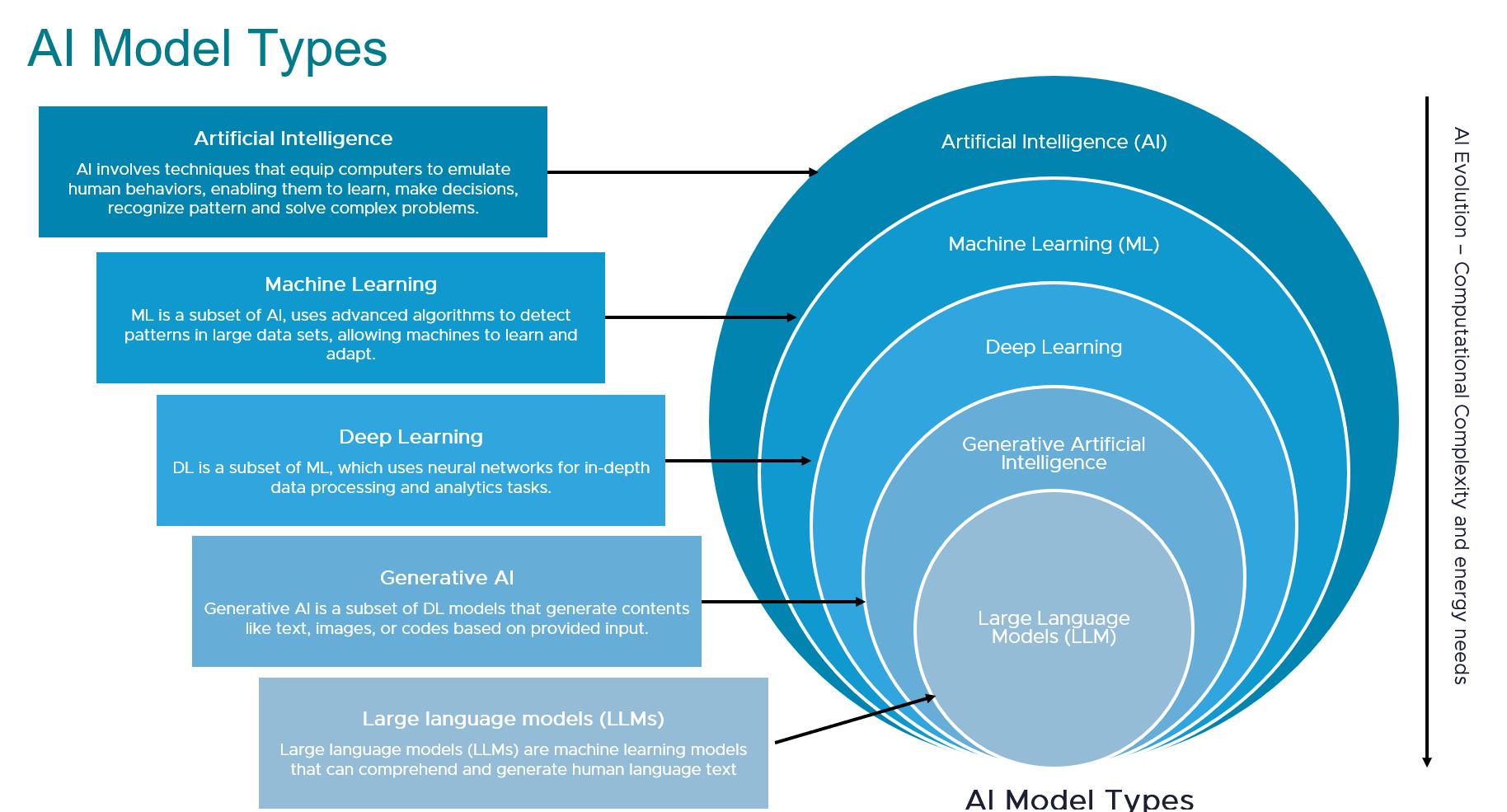

June 10, 2025
Recorded Session – Access Here!
In June’s Elevate session, we focused on the importance of partnerships in health centers and natural disasters. We heard from NACHC’s own Taina Lopez and Jessica Hinshaw; and Maria Cecilla Rodriguez from the Association of Salud Primaria de Puerto Rico, and Liz Makarra from Waikiki Health.
On average, Community Health Centers lose $50,000/day for each day they are offline.
50% of businesses that sustain interruptions (at their primary site) for 1 week or more never recover

“Facilities are expected to develop an emergency preparedness plan that is based on the facility-based and community-based risk assessment using an ‘allhazards’ approach.”

4,966 Permanent CHC sites* are in counties that have > relatively high ratings for natural hazards* (35%)
Would you like more information on this topic? Check out some of our partner resources!
The BPHC Workforce Well-being Technical Assistance (TA) project provides free, data-driven training and support to increase workforce engagement, satisfaction, and retention at health centers. Subscribe to the newsletter!
National Training and Technical Assistance Partners
Clinical Workforce Development View Resources!


Resiliency Toolkit: A Comprehensive Guide for Health Centers and Their Staff –Download a Copy!
To build resilience in health center staff, focus on both individual and organizational strategies, including promoting self-care, fostering a supportive work environment, and providing resources for stress management and mental health support.



Do you want to know more about CMS Emergency Preparedness? Check out this resource!
National Partners that Support on the Local Level:
• Direct Relief - USAPrograms@directrelief.org (enroll)
• International Medical Corp – Shira Goldstein, Head of Programs, U.S & Territories Email – sgoldstein@internationalmedicalcorps.org
• Americares – emergency@americares.org
• Project Hope – emergencyresponse@projecthope.org
• Heart to Heart - disasterresponseteam@hearttoheart.org
• Baby2Baby – disaster@baby2baby.org
Resources to Support Emergency Preparedness Local Partnerships:
• Emergency Operations Plan
• Communication Plan
• Contact List
• Local Healthcare Coalitions
• MOU Templates
Resources to Support Patients:
• Centers for Disease Control and Prevention (CDC):
• HeatRisk Tool and Action Plans
• AirNow
• Americares: Resilient Clinics Toolkit


July 8, 2025
Recorded Session – Access Here!
In July’s Elevate session, we focused on Value-Based Care (VBC) and Value-Based Payment (VBP). NACHC’s Rita Lewis talked about the landscape, Heidy Robertson-Cooper of Health Care Advisors discussed momentum and partnerships, Franchella Jennett with My Texas My Health brought in the PCA perspective, while Terri Sabella with HealthPoint offered a CHC’s perspective of VBC.

Check out these additional resources:
• Glidepath - Health Center Value-Based Care Glidepath Aligned with the Value Transformation Framework
• eLearning - Value-Based Payment: Choose Your Own Adventure Learning Series
• Tool - Value-Based Payment Readiness & Financial Project Tool
• Action Brief - Developing VBP Goals
• Action Brief - Attribution
• Action Brief - Attribution Thresholds
• Action Brief - Payor Data
Check out a few additional questions from the Elevate community.

What centralized support or services does My Texas My Health provide?
We are supporting patient experience surveying for our MSSP participants, patient outreach through Care Message, and shared patient education materials. We are also exploring care management support for centers.Franchella Jennett
How was payer buy-in to provide data feeds to AZARA accomplished?
We include this as a requirement for contracting. While the payer may not commit to a direct feed, we have a workaround to get the data into Azara and some payers offer support for that. - Franchella Jennett
How did the implementation of your value-based contract into Azara look? Can you describe how that process went?
We worked very closely with Azara to load data, and we continue to refine and build out our reporting. Our first contract gave us care gaps, attribution data, and claims data, so Azara was able to load those efficiently. We rolled out a lot of center training for how to access and use the data. - Franchella Jennett

September 9, 2025
Recorded Session – Access Here!
Session Slides – Access Here!

Training and Technical Support

In September’s Elevate session, we focused on some of the non-medical clinical factors of health, as well as PRAPARE 2.0. NACHC’s Cydnee Parsley and Nālani Tarrant discussed these topics in detail. Kayla Hochstetler with Spectra Health and Valeria Tamayo with Community Health Center Association of Connecticut gave wonderful insight from a field perspective on these topics.
Custom implementation planning


Ongoing licensing and use support.
NACHC has teams dedicated to training and technical support, custom implementation planning, and ongoing licensing and use support.
Check out these additional resources:
• Visit the Website (Link or QR Code): PRAPARE® Knowledge and Resource Center
• Website: http://www.prapare.org/
• For More Information: prapare@nachc.org
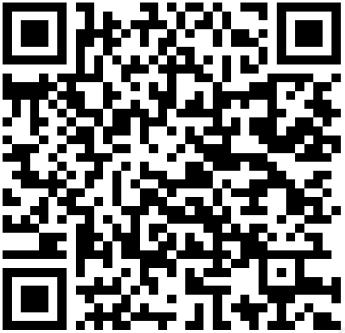
2026 is coming soon… and your input is

What do you most value about Elevate and want to see the program continue and/or strengthen?
Recommendations for what Elevate can do differently in Elevate 2026 (content, format, other)?
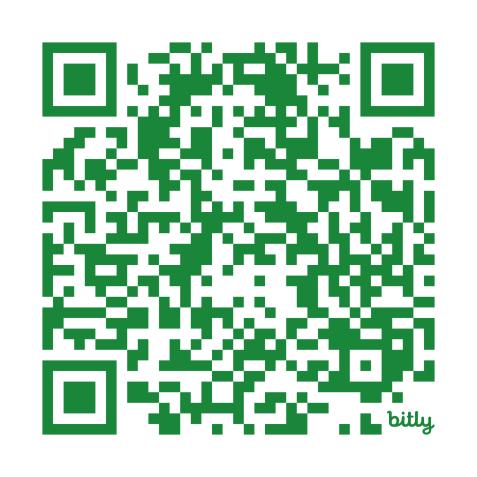
https://bit.ly/Elevate2026Feedback

September 14, 2025
Recorded Session – Access Here!
In October’s Elevate session, we explored how adopting a systems approach to care delivery enhanced blood pressure control and promoted overall heart health. Participants reviewed the importance of blood pressure management, current clinical guidelines, and evidencebased strategies that improved hypertension outcomes.
Training and Technical Support
Custom implementation planning



Ongoing licensing and use support.
The session highlighted the components and benefits of the Target: BP initiative and its role in supporting health centers to recognize, monitor, and manage hypertension effectively. Attendees also learned from peer health centers that implemented successful strategies for blood pressure management and gained awareness of resources from NACHC and other organizations that supported heart health improvement efforts.

NACHC is proud to partner with the American Heart Association for this Elevate session to support heart health and blood pressure control.
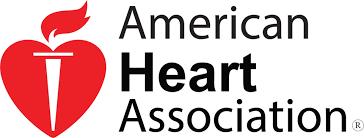
High blood pressure is the most prevalent and modifiable risk factor for the development of cardiovascular diseases, including coronary artery disease, heart failure, atrial fibrillation, stroke, dementia, chronic kidney disease, and all-cause mortality.

The overarching blood pressure treatment goal is < 130/80 mm Hg for all adults
Do you want to learn more about the value of Target BP? Watch this video!
NACHC Million Hearts® Resources
NACHC Million Hearts Resources

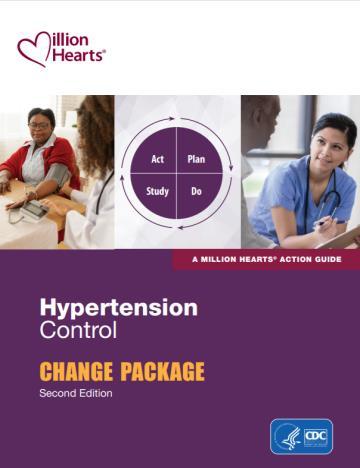
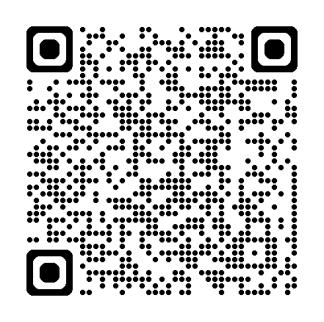


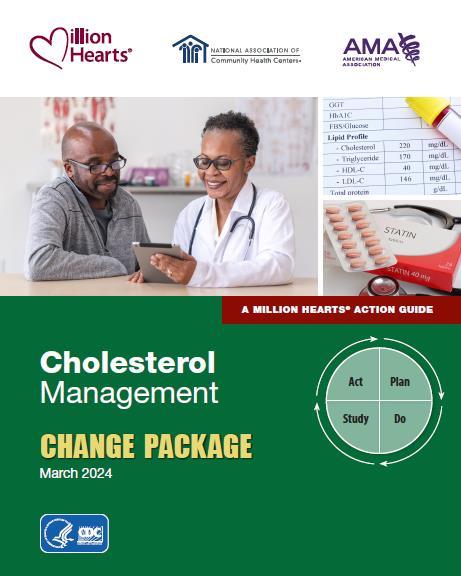
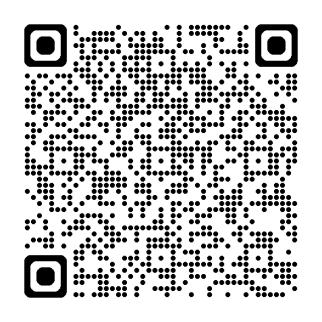
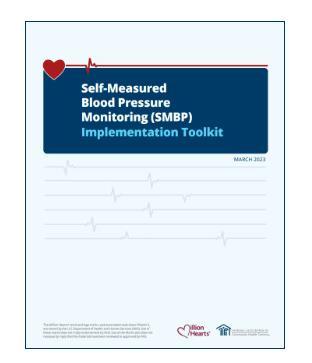


November’s Elevate Session
November 11, 2025
Recorded Session – Access Here!
– Access Here!
In November’s Elevate session, we explored the importance of a health center quality improvement strategy and how to close care gaps following a clear, streamlined process that leverages data and evidencebased tools.
Training and Technical Support
Custom implementation planning
Ongoing licensing and use support.

The session highlighted the common causes for care gaps as well as resources to support health centers in this work. Attendees also learned from peer health centers that implemented successful strategies for quality improvement and closing care gaps.
